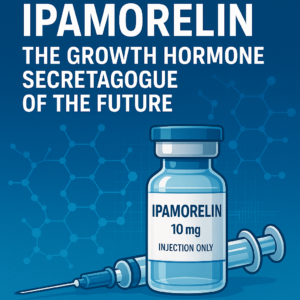Understanding Kratom
Kratom, a tropical tree native to Southeast Asia, has gained attention for its unique properties. Its leaves contain compounds that interact with the brain’s receptors. Traditionally, people have used it for pain relief and to boost energy levels. Recently, the conversation has shifted toward its potential impact on emotional resilience. Can this plant contribute to a better emotional state? Let’s explore this topic together.
What Is Kratom?
Kratom (Mitragyna speciosa) comes from the coffee family. People in countries like Thailand, Malaysia, and Indonesia have used it for centuries. Traditionally, folks chewed the leaves or brewed them into tea to combat fatigue and enhance mood. The plant contains active compounds like mitragynine and 7-hydroxymitragynine, which have stimulant and sedative effects.
In the modern context, kratom has sparked controversy. Some advocate for its benefits, claiming it helps with anxiety and depression. Others raise concerns about safety and potential addiction. Understanding both sides is vital for anyone considering its use.
The Link Between Kratom and Emotional Resilience
Emotional resilience is the ability to bounce back from life’s stresses and challenges. This quality plays a crucial role in mental health. Many seek ways to enhance their emotional resilience, and kratom has entered the conversation. Could this natural substance help individuals cope with emotional struggles?
Supporting Emotional Well-being
Some users report feeling calmer and more positive after taking kratom. How does this happen? The active compounds in kratom can influence neurotransmitters in the brain. For instance, they may increase serotonin and dopamine levels. These neurotransmitters are often linked to feelings of happiness and emotional stability.
However, the effects can vary significantly from person to person. Factors such as dosage, strain, and individual body chemistry play a role. Some may find relief from anxiety, while others could experience side effects. It’s essential to approach kratom with caution and awareness.
Types of Kratom and Their Effects
Kratom comes in various strains, each offering different effects. Understanding these strains can help you choose the right one for your needs.
1. Red Vein Kratom
This strain is known for its calming properties. Many users report relief from stress and anxiety. It can also help with insomnia, allowing for more restorative sleep. If emotional resilience is your goal, red vein kratom might be worth considering.
2. Green Vein Kratom
Green vein kratom offers a balance between stimulation and relaxation. Users often feel energized and uplifted without the jitteriness that sometimes comes with stimulants. This strain can enhance focus and mood, making it another option for those looking to improve emotional resilience.
3. White Vein Kratom
White vein kratom is typically more stimulating. Many people use it for motivation and alertness. While this can contribute to mood enhancement, it’s essential to be cautious. Too much stimulation might lead to anxiety rather than resilience.
| Strain | Effects | Best For |
|---|---|---|
| Red Vein | Calming, pain relief | Anxiety, stress |
| Green Vein | Balanced, energizing | Mood enhancement |
| White Vein | Stimulating | Motivation, focus |
Potential Benefits of Kratom for Emotional Resilience
Kratom offers several potential benefits that could enhance emotional resilience. Let’s explore these in more detail.
1. Mood Enhancement
Many users claim that kratom helps lift their mood. The compounds interact with opioid receptors, influencing how we feel. Enhanced mood can alleviate feelings of sadness or anxiety. While scientific studies are limited, anecdotal evidence suggests that kratom may play a role in emotional well-being.
2. Stress Reduction
Stress is a leading cause of emotional turmoil. Kratom may help reduce stress by promoting relaxation. Users of red vein kratom often report a calming effect, which can make it easier to manage daily challenges. Less stress leads to better emotional resilience.
3. Improved Focus
Kratom can enhance focus, especially with certain strains like green vein. Improved concentration helps individuals navigate tasks and responsibilities more effectively. This can contribute to a greater sense of control and emotional balance.
Risks and Concerns of Using Kratom
While kratom may offer benefits, it’s essential to weigh these against potential risks. Understanding the concerns can help you make an informed decision.
1. Addiction Potential
Kratom has addictive properties, especially with long-term use. Users may develop a dependency, leading to withdrawal symptoms if they try to quit. This can negatively affect mental health.
2. Side Effects
Some people experience side effects after taking kratom. These can include nausea, dizziness, and digestive issues. Such symptoms may impact emotional well-being, leading to increased anxiety rather than relief.
3. Legal Concerns
Kratom’s legality varies by location. Some countries and states have banned its use. Before considering kratom for emotional resilience, it’s essential to understand the laws in your area.
The Role of Dosage in Emotional Resilience
When it comes to kratom, dosage plays a critical role in determining its effects. Finding the right amount can make a significant difference in your experience.
Low Dose (1-3 grams)
In small doses, kratom tends to act as a stimulant. Users may feel more energetic and focused. For those looking to tackle daily tasks or cope with mild anxiety, a low dose might be the best choice.
Moderate Dose (3-5 grams)
At moderate doses, kratom often provides balanced effects. Users may experience mood enhancement along with mild sedation. This dose can be suitable for individuals seeking emotional resilience while maintaining some energy.
High Dose (5-8 grams)
With higher doses, kratom takes on more sedative effects. Users may feel a sense of calm or even euphoria. However, this can lead to side effects like dizziness or nausea, which can adversely affect emotional well-being.
| Dosage | Effects | Best For |
|---|---|---|
| Low (1-3g) | Energizing, focusing | Mild anxiety |
| Moderate (3-5g) | Balanced, mood-enhancing | Emotional resilience |
| High (5-8g) | Sedating, euphoric | Severe anxiety, sleep issues |
Integrating Kratom into a Holistic Approach
Using kratom for emotional resilience shouldn’t be a standalone solution. Instead, consider it as part of a broader approach. Incorporating other strategies can enhance its benefits.
1. Therapy and Counseling
Professional support can provide tools and techniques for managing emotions. Therapists can help identify underlying issues and develop coping strategies. Integrating kratom with therapy may yield better outcomes for emotional resilience.
2. Mindfulness and Meditation
Practices like mindfulness and meditation can enhance self-awareness and emotional regulation. Combining these techniques with kratom may provide a strong foundation for building resilience.
3. Physical Activity
Regular exercise promotes mental well-being. It releases endorphins, which can improve mood. Adding physical activity to a routine that includes kratom may enhance resilience more effectively.
Personal Stories and Experiences
Listening to others can provide insights into kratom’s effects on emotional resilience. Many individuals share their journeys, highlighting both successes and challenges. Hearing these stories can guide potential users in their decision-making.
1. Positive Experiences
Countless users have reported positive effects from kratom. Many describe feeling more in control of their emotions and able to handle stress better. These personal anecdotes can inspire those considering kratom as a tool for emotional resilience.
2. Cautionary Tales
Not everyone’s experience with kratom is positive. Some have faced challenges, including dependency and negative side effects. These cautionary tales remind potential users of the importance of informed choices. Always consider both sides of the story.
Conclusion: Finding Your Path to Emotional Resilience
Kratom presents an intriguing option for enhancing emotional resilience, but it’s not without risks. By considering its benefits and drawbacks, you can make informed decisions about its use. It’s crucial to approach kratom with caution while integrating it into a holistic plan for well-being.
As you explore this path, seek professional guidance. Combining kratom with therapy, mindfulness, and physical activity may yield the best results. Ultimately, emotional resilience is a journey that requires patience, self-awareness, and the right tools.
Frequently Asked Questions
1. What is kratom?
Kratom is a tropical tree native to Southeast Asia, known for its leaves that contain compounds affecting brain receptors.
2. Can kratom help with anxiety?
Many users report that kratom helps reduce anxiety, primarily through its mood-enhancing properties.
3. How does kratom affect emotional resilience?
Kratom may enhance emotional resilience by improving mood, reducing stress, and aiding focus. However, effects vary by individual.
4. Are there different strains of kratom?
Yes, there are several strains, including red, green, and white vein, each offering different effects.
5. Is kratom addictive?
Kratom has the potential for addiction, especially with long-term use. Users may develop a dependency.
6. What are the side effects of kratom?
Common side effects include nausea, dizziness, and digestive issues, which can impact emotional well-being.
7. How much kratom should I take for emotional resilience?
Dosage varies by individual, but a moderate dose (3-5 grams) may offer balanced effects for emotional resilience.
8. Is kratom legal?
Kratom’s legality varies by location. Check your local laws before considering its use.
9. Can I use kratom alongside therapy?
Yes, many people combine kratom with therapy and mindfulness practices to enhance emotional resilience.
10. Where can I learn more about kratom?
Resources such as educational websites, scientific studies, and user forums can provide valuable information about kratom.
References
- National Institute on Drug Abuse – Kratom
- American Kratom Association – The Benefits of Kratom
- Journal of Psychoactive Drugs – Kratom use and Addiction
- Mayo Clinic – Kratom: Is It Safe?
- Healthline – What Are the Benefits and Risks of Kratom?







